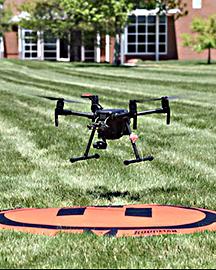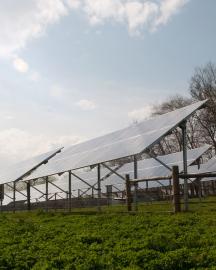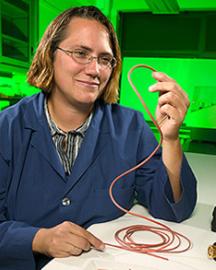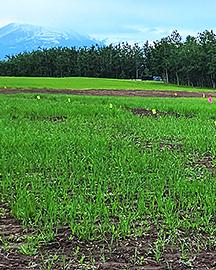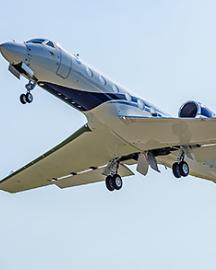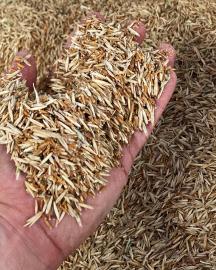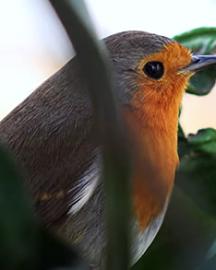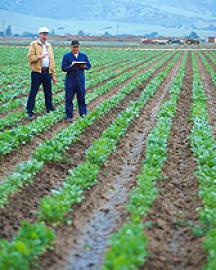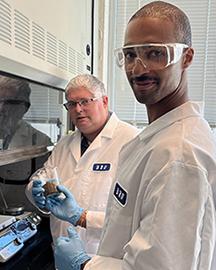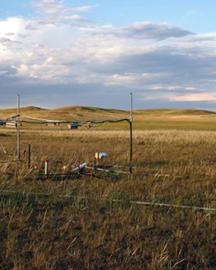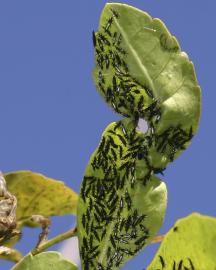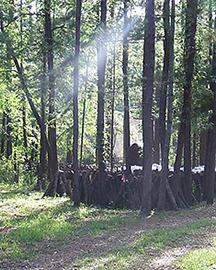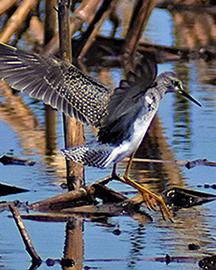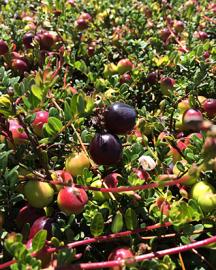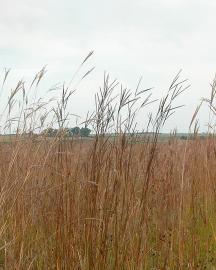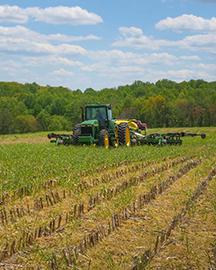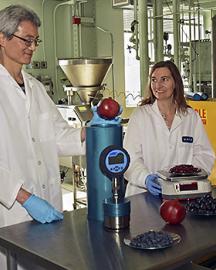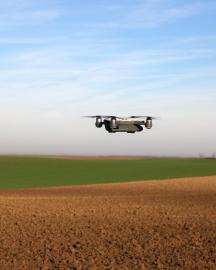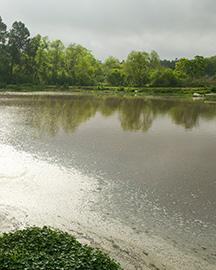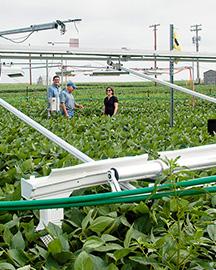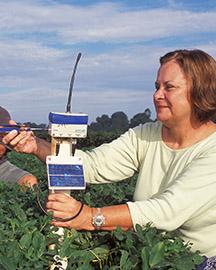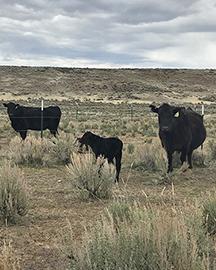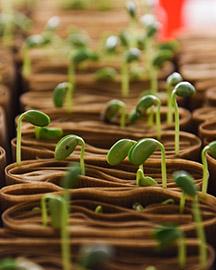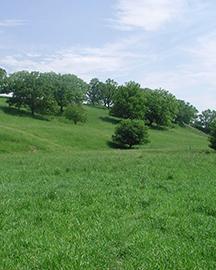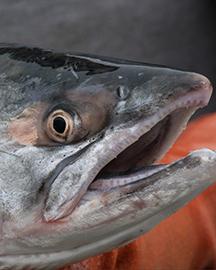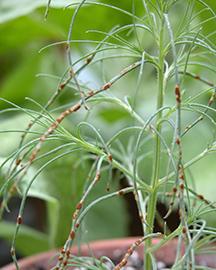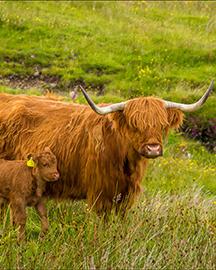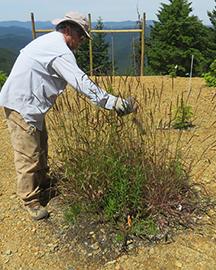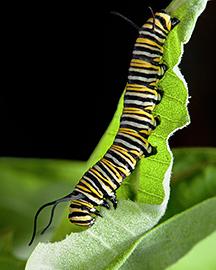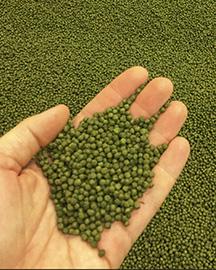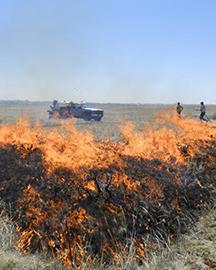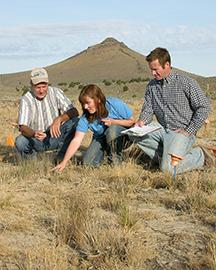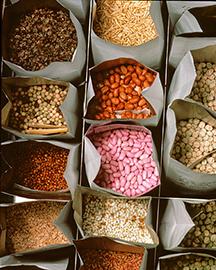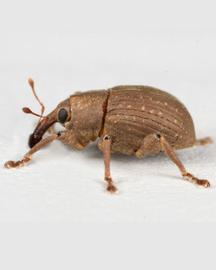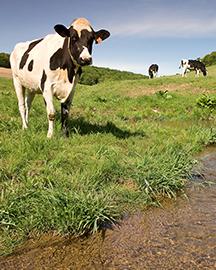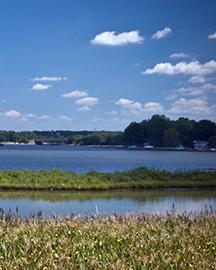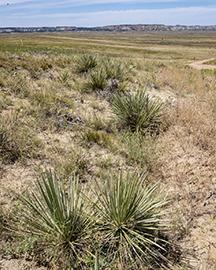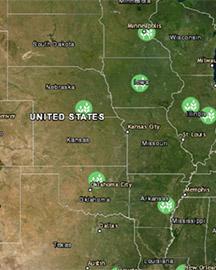ARS scientists are studying the benefits of naturally colored cotton lines to develop future lines that are flame resistant and can improve the safety of cotton products.
Sustainability
The world’s population is expected to reach 9 billion by the year 2050. Producing enough food for our growing planet may be the single greatest challenge the world will face. To meet this huge demand, farmers, ranchers, and suppliers must find ways to produce more food in a sustainably, environmentally friendly way.
ARS is dedicated to helping farmers address the increasing global demand for food, feed, fiber, and fuel while also sustaining the environmental and economic viability of agriculture. As a multidisciplinary practice and philosophy, sustainable agriculture unites researchers from a diverse range of scientific studies — microbiology, animal nutrition, soil science, plant physiology, and more — to the common goal of overcoming challenges related to productivity, profitability, energy efficiency, and natural resource management.
Here are some examples of our work:
Robots guided by advances in computer science and AI present an opportunity to ensure a growing U.S. agriculture.
Does the future of farming include harvesting solar rays along with crops?
ARS scientists in Idaho are using cattle to promote ecological restoration of western rangelands overrun by invasive grasses.
Researchers are collaborating to ensure that Alaska farmers have the best possible crops and practices for resilient and sustainable production in their changing condition.
Scientists are working alongside industry and academia researchers to produce green jet fuel.
Researchers believe perennial grains could provide a number of crucial advantages for farmers and the environment.
Agriculture's impact on the planet depends on how it’s practiced.
Learn about this innovative approach that’s helping farmers grow their crops more efficiently – and sustainably.
ARS scientists have invented a new way to keep waste out of landfills, make consumer products safer, and reduce dangerous emissions – all at the same time.
ARS researchers have discovered that the condition of soil dramatically affects how well grasslands can sequester carbon in the soil.
ARS scientists have identified a possible tool to fight the invasion of the Brazilian peppertree.
Flooding fields may be a win-win for farmers and birds in the Mississippi Delta.
A Thanksgiving meal just wouldn’t be the same without the sweet/tart goodness of cranberries. A project funded by ARS is working to ensure the staple stays on the table.
ARS researchers are improving soil through better farming practices.
ARS developed climate smart farming systems by employing artificial intelligence (AI) to help farms become more sustainable and environmentally friendly.
ARS scientists in Arizona are exploring ways to use water more efficiently, by recycling wastewater to irrigate crops.
Learn how ARS’s research and accomplishments promote sustainability, address climate change, and benefit the environment.
A new method of freezing food without turning it rock solid could not only improve the quality, but save energy and reduce greenhouse gas emissions, too.
ARS scientists are working to make a better jet biofuel and make air travel more sustainable.
Nematodes with a taste for "insect innards" may offer cranberry growers a natural alternative to fighting hungry crop pests with chemical insecticides.
ARS researchers are exploring using camera-mounted drones to reduce herbicide spraying where and when it’s not needed.
ARS scientists aren’t afraid to get their hands dirty while researching ways to manage manure and protect water resources.
A high-tech facility called SoyFACE allows for open-air field tests simulating greenhouse gases conditions predicted for 2050.
ARS scientists helped to develop Irrigator Pro, an agricultural decision support tool that helps farmers schedule irrigation.
ARS researchers have developed innovative methods to mitigate wildfires.
ARS scientists developed a simple hand-operated planter which can efficiently seed a variety of small-seeded herbs and vegetables.
ARS scientists released “Hidden Valley” meadow fescue, a type of flowering grass that flourishes across the midwestern U.S.
ARS researchers in Franklin, ME, have bred an improved salmon strain and shared the eggs with commercial fish farms
A process controls weeds by using exhaust heat produced by a walk-behind tractor.
ARS researchers and partners have developed the most complete genome sequence to date for yak and Scottish Highland cattle.
Scientists are examining biochar's potential to rejuvenate the soil, especially in degraded land areas like mining sites where high acidity and pollutants like heavy metals can stop or slow plant growth.
Scientists' studies of nine milkweed species in critical breeding areas of the country show that female monarch butterflies prefer laying their eggs on certain milkweed species.
Scientists are experimenting with alfalfa as a promising alternative to using fishmeal, a protein-rich ingredient in aquaculture feeds given to "farm-raised" finfish and shellfish.
When it comes to restoring rangeland habitats, there is no replacement for "prescribed fire," according to Agricultural Research Service ecologists.
ARS scientists in Burns OR are giving native plants, and the ecosystems they support, a helping hand by combatting invasive plants.
ARS scientists are helping to preserve the genetic diversity of our food crops by storing the seeds and other parts of hundreds of thousands of plants.
ARS scientists collect, study and evaluate natural enemies with potential to biologically control invasive plants.
ARS scientists are working to increase the photosynthetic ability of food and bioenergy crops.
ARS scientists are exploring sustainable approaches to managing forage and grazing lands.
ARS scientists are developing integrated approaches to managing crop, animal and watershed systems.
ARS scientists develop sustainable agricultural systems to protect natural resources and support rural communities in arid and semi-arid regions.
Use our interactive map to find out what revolutionary research is being conducted in your state.





